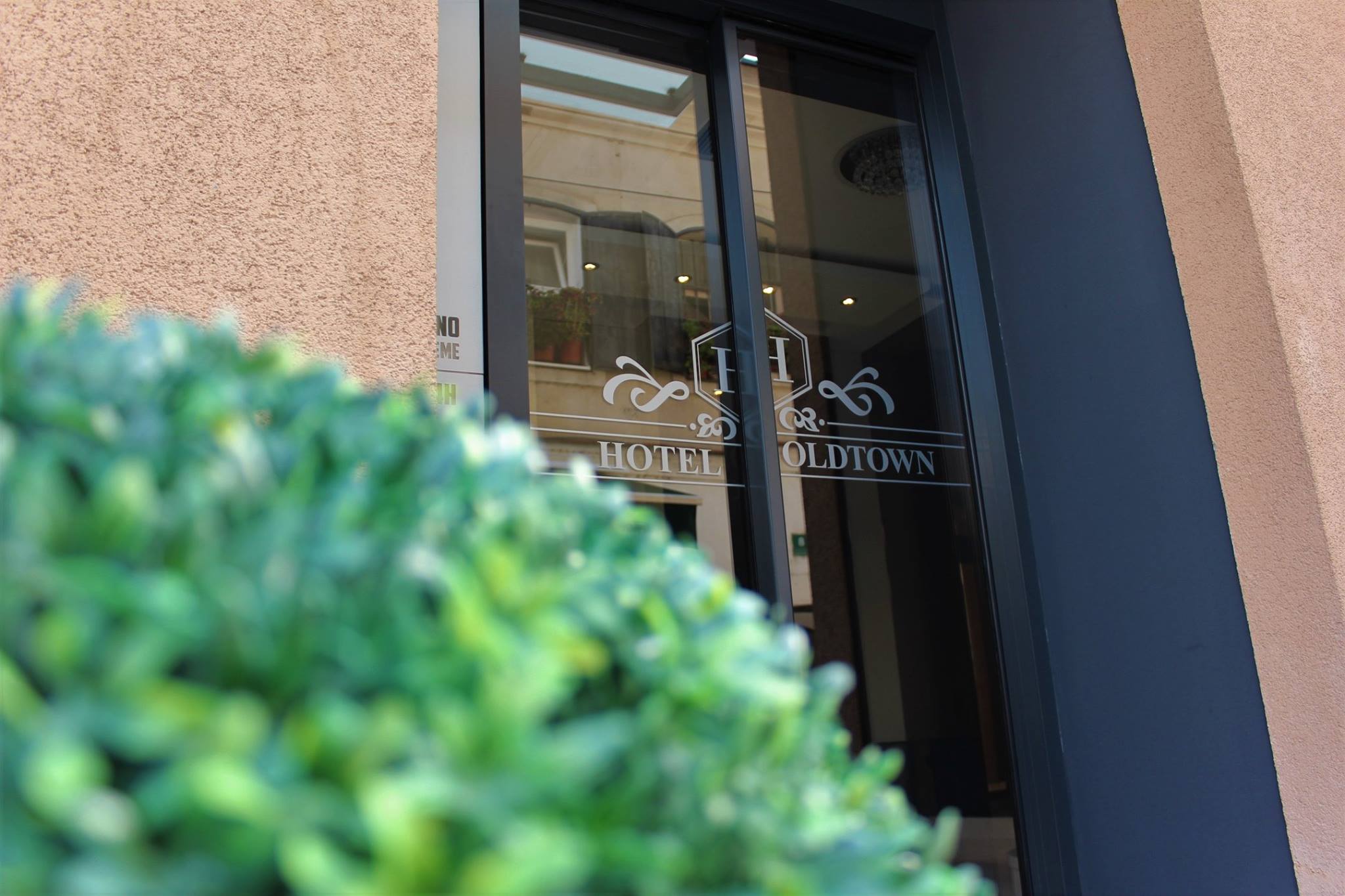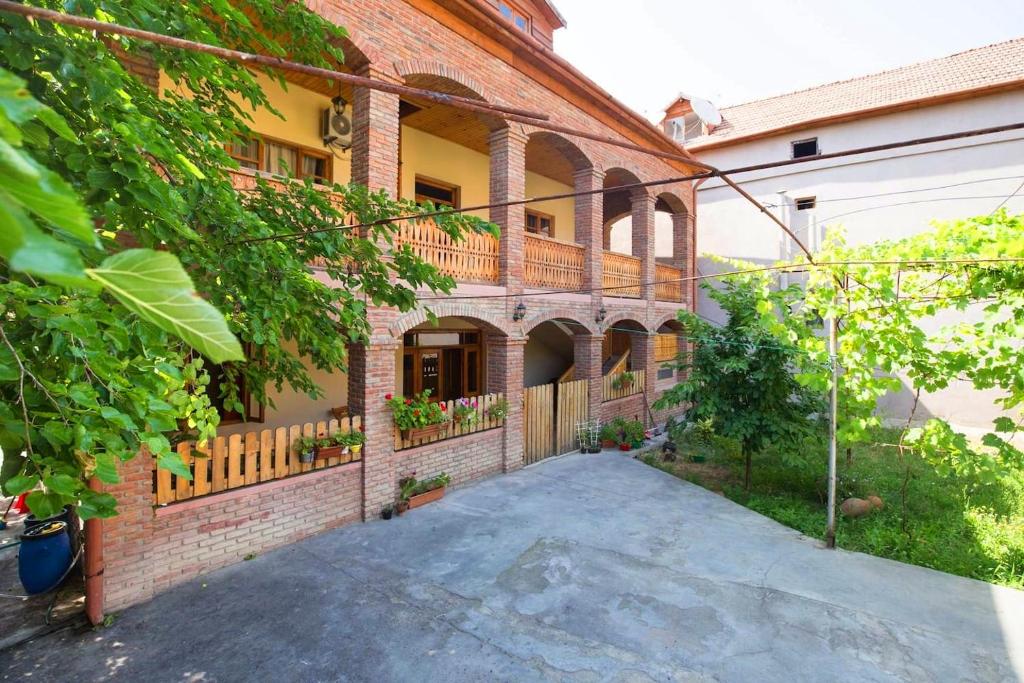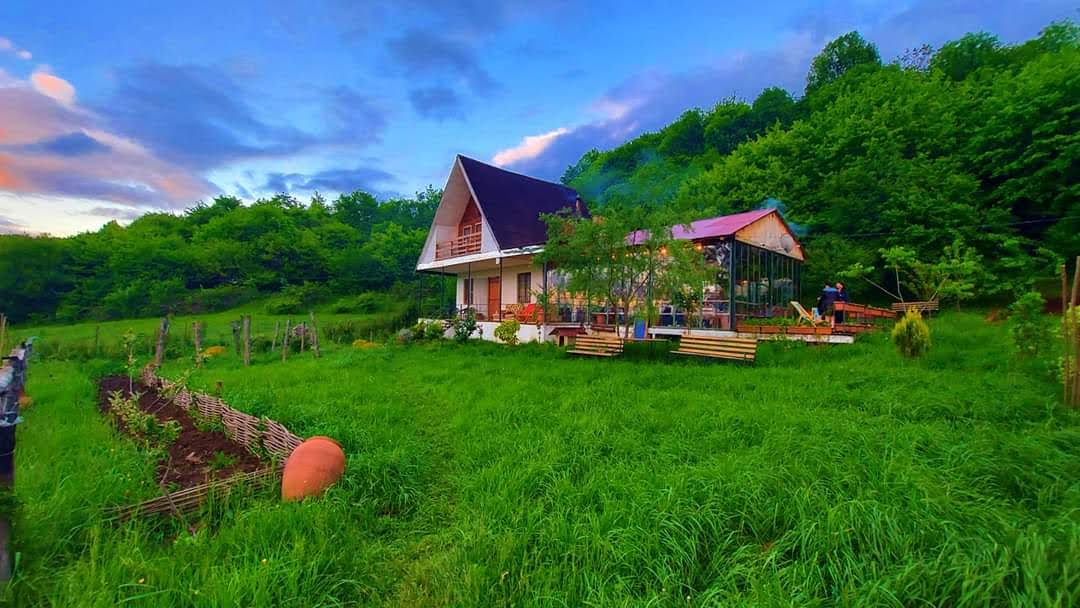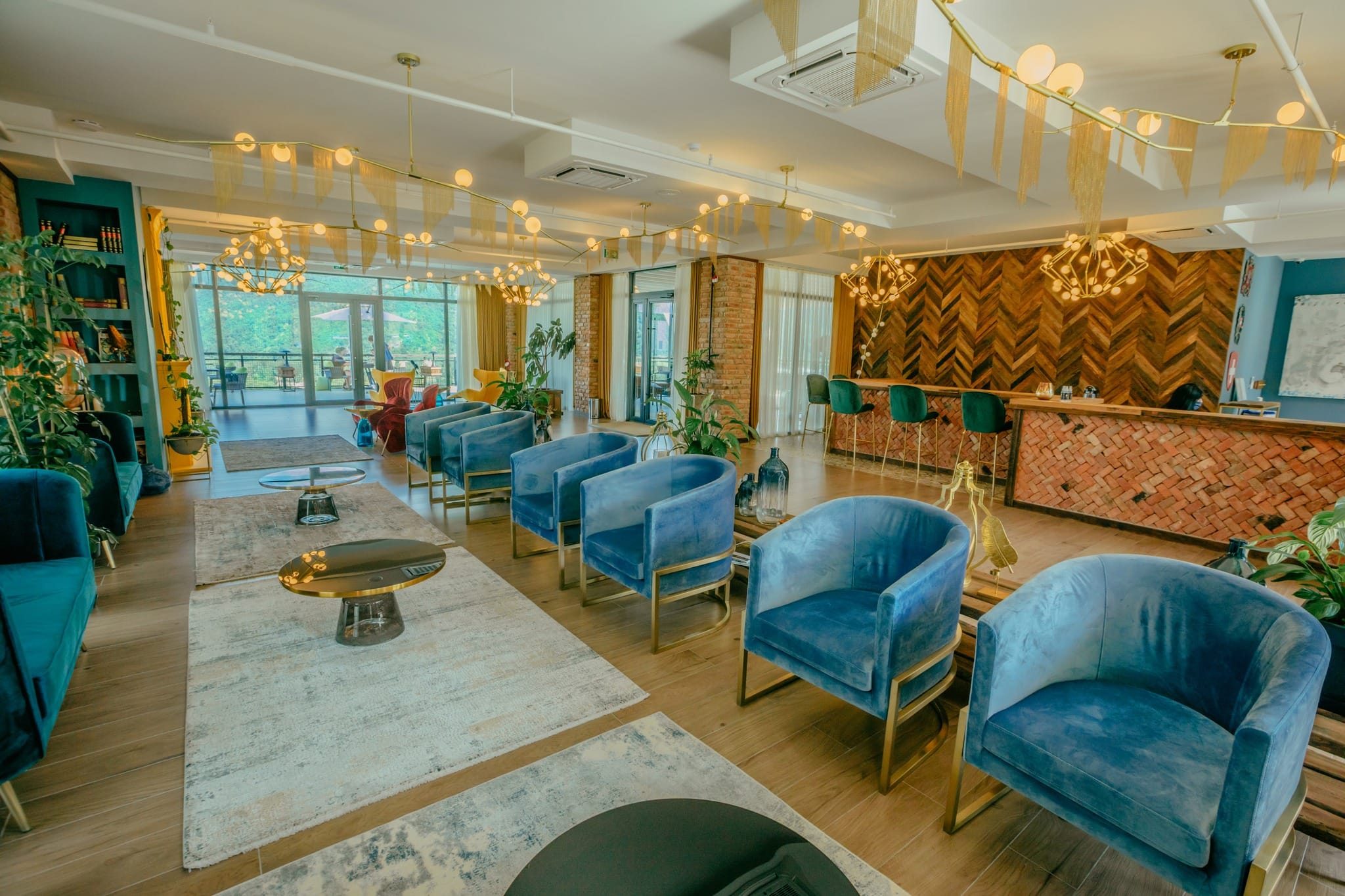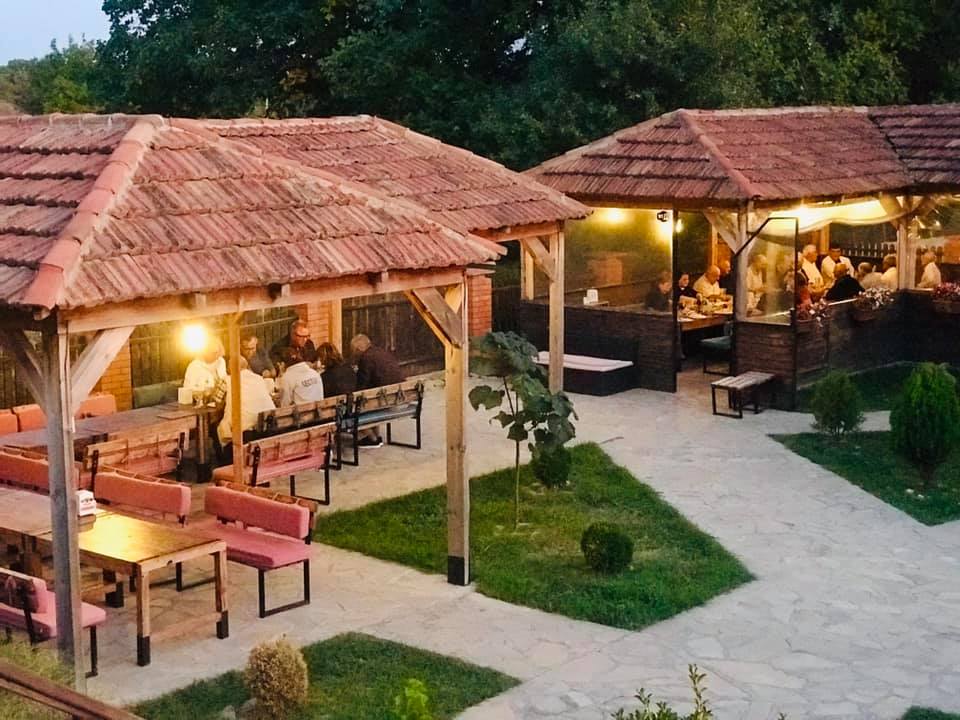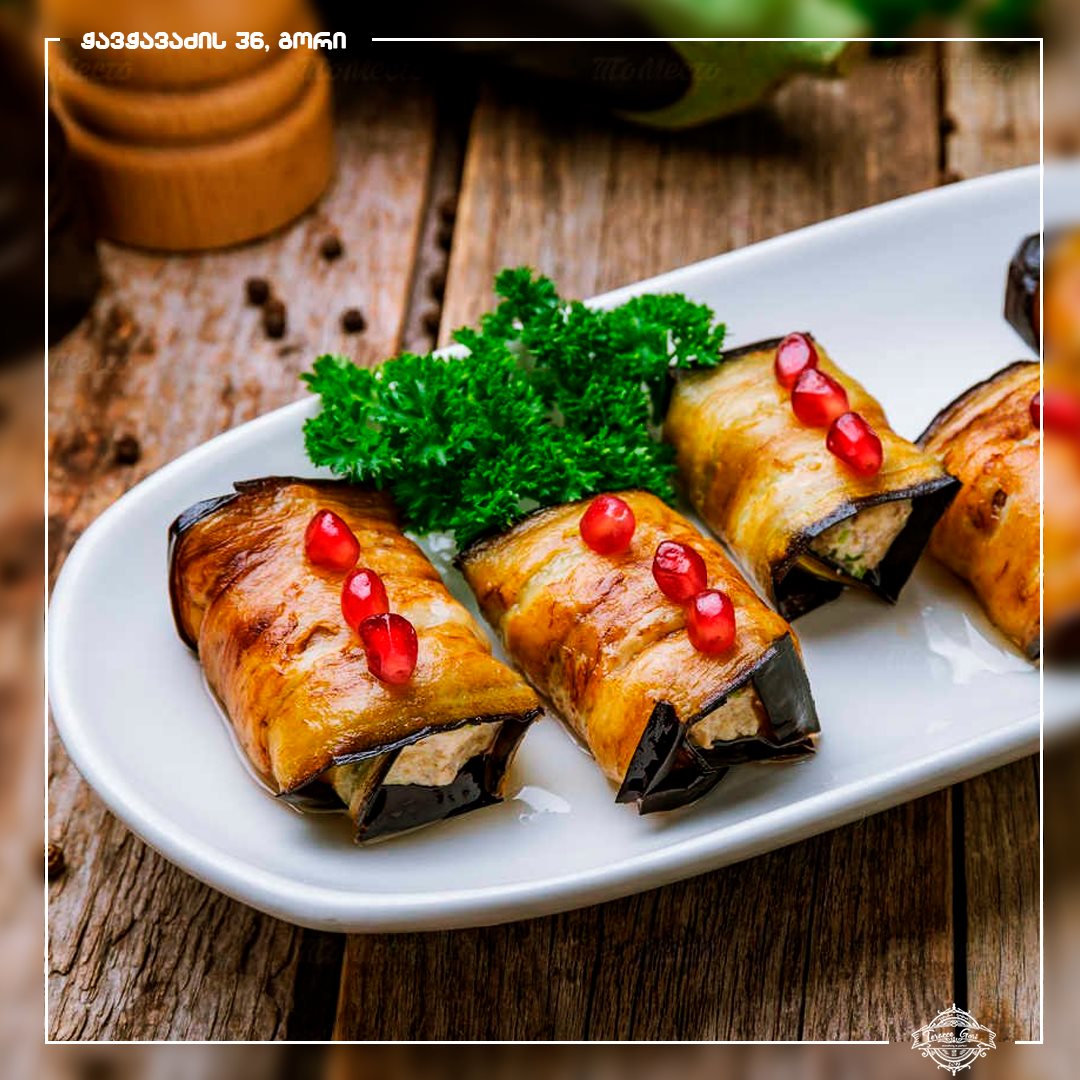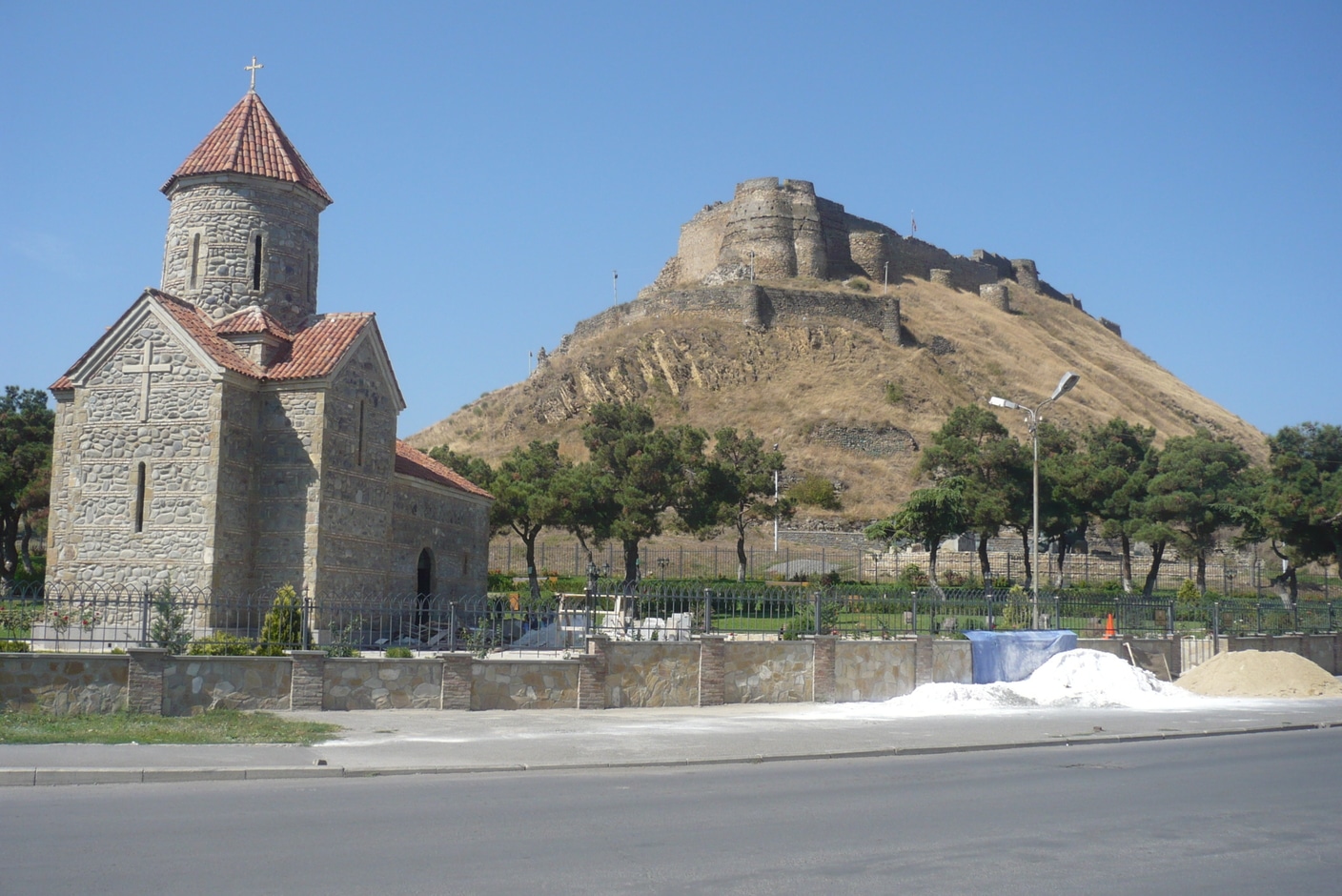Hotel old town is located in the heart of the Old Town of Sarajevo, which with its quality of accommodation allows you a pleasant and unforgettable stay. It offers elegant, bright rooms with bathroom, air conditioning, TV, minibar, and free Wi-Fi throughout. In the immediate vicinity are many important sights from the distant and recent past. For business travelers, the proximity of all administrative centers allows the stay to be as successful as possible in business terms. Our friendly and professional staff is at your disposal and at your service to make your stay pleasant and unforgettable.
Archives: Directory listings
Directory listings
The Jewish Story of the Shida Kartli Region of Georgia
Shida Kartli is located in the eastern part of Georgia. This region is full of cultural monuments and beautiful nature. The areas which were inhabited by Jews were Kareli, Surami, and Gori; as well as a city near the city Mtskheta, which is located in Mtskheta-Mtianeti province of Georgia.
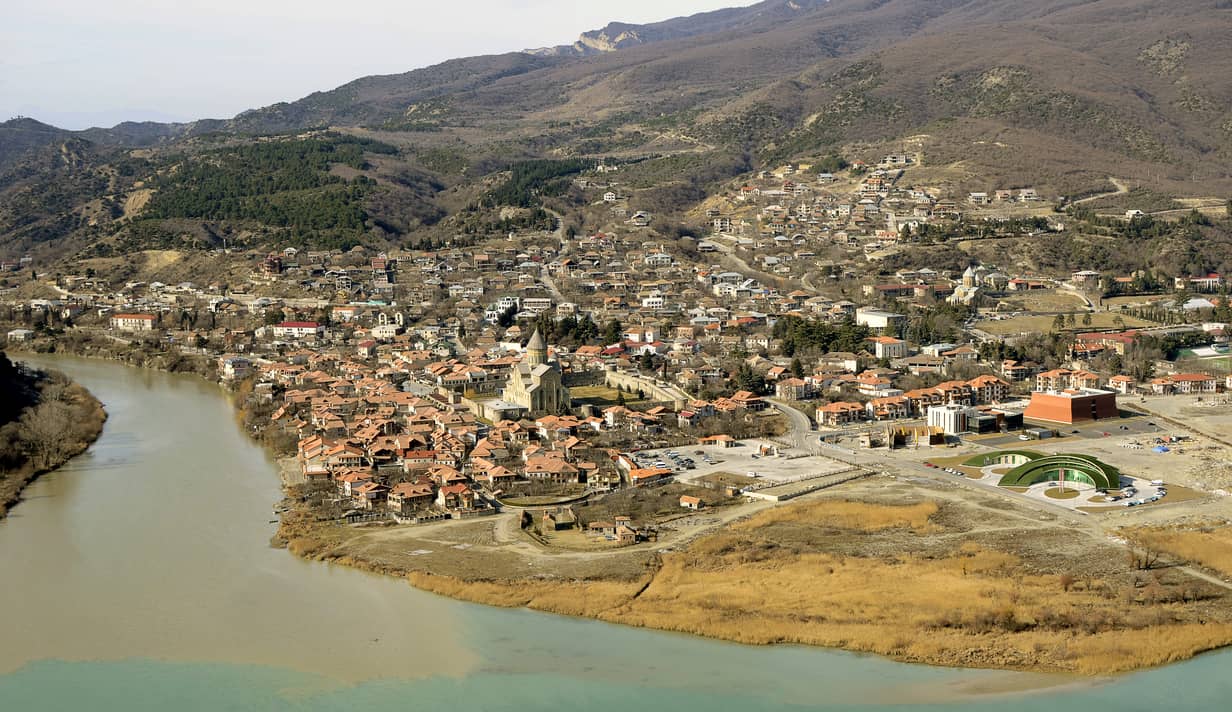
Mtskheta, located at the junctions of the rivers Mtkvari and Araks, is an old capital of Georgia. This is the place where Jews appeared and settled down. After their persecution from Jerusalem in 586 BC, they asked the head of Mtskheta for permission to let them inhabit the area, for which they would pay a relevant amount. They got a positive answer and they occupied the part of the banks of the river Aragvi named Zanavi. After a little while the Jewish moved to different villages and cities, which were trade centers. In “Conversion of Kartli” this community is dated as the year 169 BC.
In the Georgian Chronicles Georgian Jews are connected to the crucifixion of the Christ. Eliezeri, who was from Mtskheta, and Longinus traveled to Jerusalem and they brought the cloth of Christ with them. Sidonia hugged the cloth, fell on the ground and died, and because they could not get the cloth out of her arms they buried her with it. According to the legend, the gravestone located around Svetitskhoveli territory represents Sidonia’s grave. Sidonia is also connected to Saint Nino; Sidonia traveled around with Nino, along with 6 Israeli nuns and was the witness of her miracles. In the middle centuries’ documents, it is said that many Jews were victims of kidnapping and theft; the cruel behaviour caused Jews to leave the region.
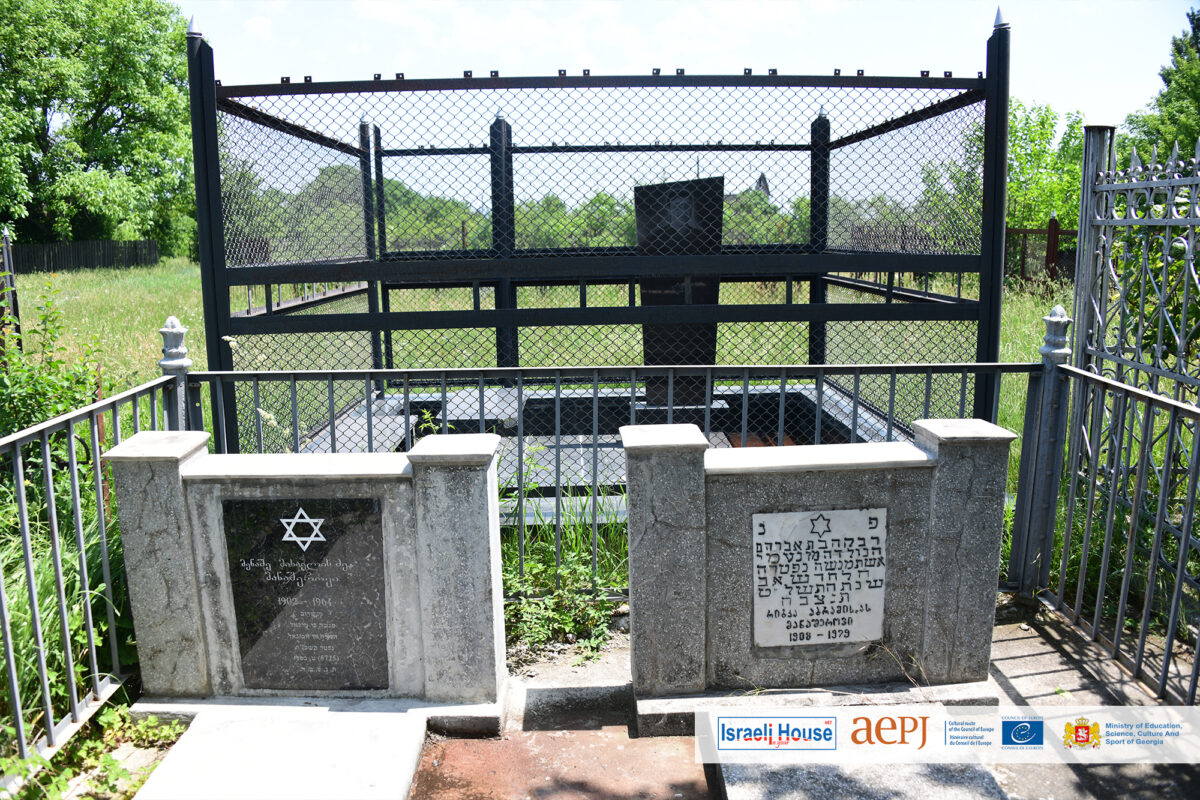
Kareli, a town in Shida Kartli, Georgia, is located on the river Mtkvari. There was a time when the number of Jews living in Kareli was fairly vast but today that is not the case, on this day the Jewish population is very small; it only consists of 400 beings. Some say the word “Kareli” doesn’t mean the “The place with wind”, and its actual origin is an Herbew word, of men, but that is just an assumption. In old times Jews were accounted as the workers of Tsitsishvili; later as the state peasants. Jews in Kareli usually were merchants and lived ordinary lives, their appearances and rules corresponded with Kareli’s population. The sites you can find in this town are Kareli Synagogue, which was built in the 20th century and a Jewish graveyard.
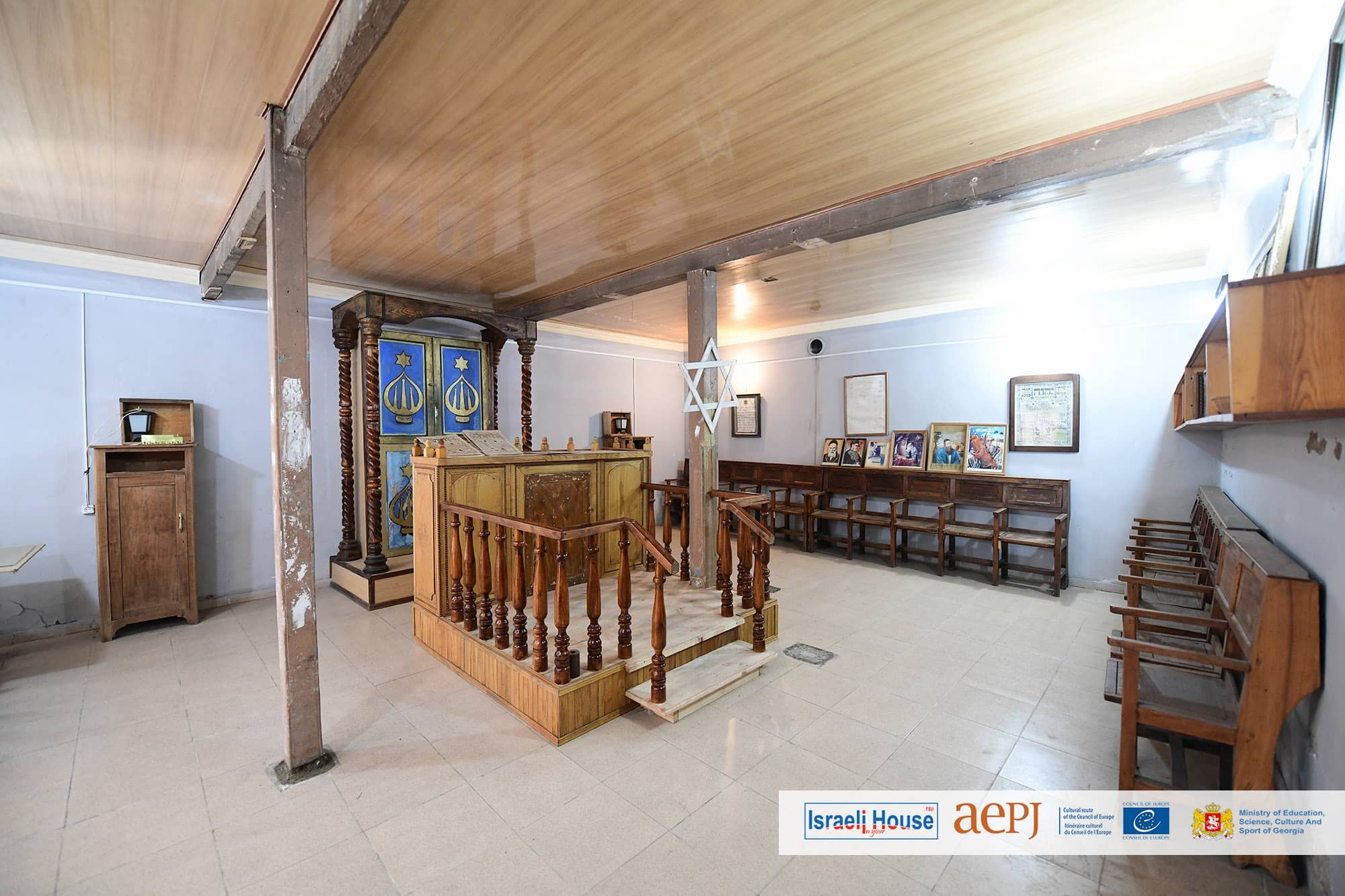
Gori is a city in eastern Georgia, which serves as the regional capital of Shida Kartli and the center of the homonymous administrative district. It is located at the confluence of the rivers Mtkvari and Liakhvi. The name comes from a Georgian word gora, which means, “heap”, or “hill”. The city has an old history about the Jews which starts from the 17th century; at first they inhabited the area around Gori tower, since on Sundays a trade was held here and Jews were very involved in it. In the year 1866 there were 281 Jews living within the overall 5000 Gori population.
Jewish inhabitants were usually merchants and craftsmen. In the 20th century the economy of Jewish population grew. In 1915 there were 104 Jews in Gori (approximately 16-17 families); they inhabited the same area. In 1946, during World War II, a legally registered community was established; under which was this community a synagogue, which was located on 16 Cheloskicenev St. The main Rabbi was Mordechay Davarashvili; he helped Zionist Aliyah in Israel. After the death of Rabbi Mordechay every holy book owned by him was handed to a synagogue. In this city you can find sites such as one big synagogue and Jewish graveyard.
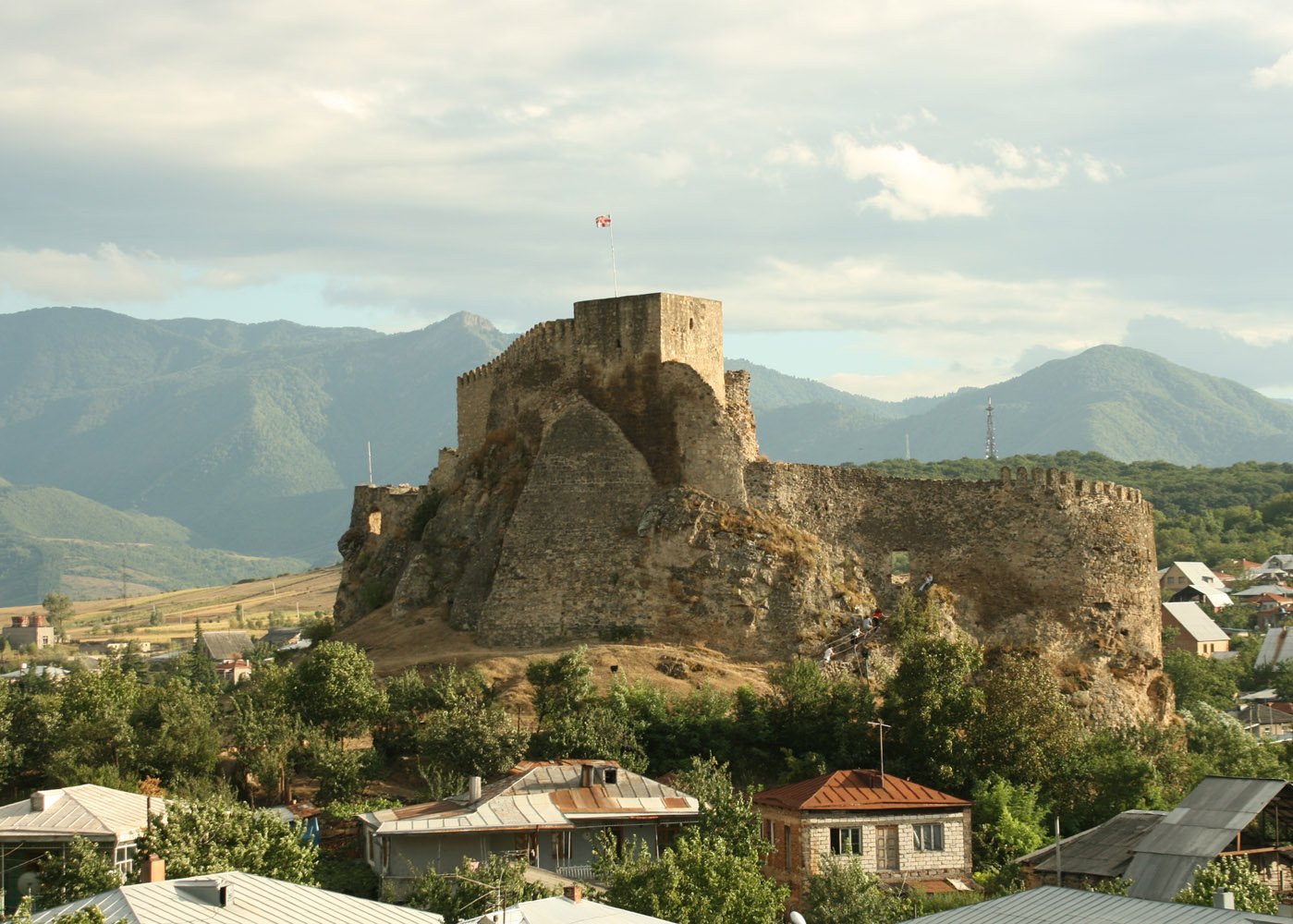
Surami is a mountain resort in Shida Kartli’s side of Khashuri Municipality. Until the year 1970, before the migration of Jews started, there were 580 Jewish families living in Surami. The first stage of migration started in the 70s and continued in the 80s and from the 90s to 2000s due to migration only 10 families were left in the city. Majority of Jews sold their houses and the former district of Jews was later named Jerusalem Street.
Georgia Gold
Georgia Gold offers accommodation with a restaurant, free private parking, a fitness centre and a bar. This 4-star hotel offers a 24-hour front desk, room service and free WiFi. The hotel features family rooms. At the hotel, every room comes with a wardrobe. At Georgia Gold every room includes a desk, a flat-screen TV and a private bathroom. Guests at the accommodation can enjoy a buffet breakfast. Gori Fortress is 2.2 km from Georgia Gold. The nearest airport is Tbilisi International Airport, 79 km from the hotel.
Hotel Magdalena
The hotel has a garden planted nearby. There is a parking place for vehicles. You will enjoy a mountain view from your window.
Agro House
Agro house, family wine cellar, fish farm offers our guests rooms for rent in farm house. We have our own family wine cellar where we produce different kinds of wine: Tavkveri, Shavkapito, Goruli Mtsvane and Chinebuli, all of them are made with old Georgian traditional methods. Near our agro house we have trout fish farm, where you can catch fish and cook it with your own. Vegetables and fruits which are used for prepearing breakfast and dinner/lunch is from our garden. So we can say that agro house is eco property.
Agro house is located 120 km from Tbilisi, near Borjomi. It takes 1:30 hour from Tbilisi, 20 min. from Borjomi.
Highland area, mountain and forest fresh air make our place more attractive.
Mtserlebi Resort
On the east bank of the Likhi mountain range, above 750 meters from sea level, lies a magical village which will provide you with thousand reasons to unconditionally fall in love with it.
Surrounded by mountains, Kvishkheti stages a grand collision of Black Sea’s warm, humid air with Kavkasioni’s crystal cold breath. This contributes to the unique healing properties of the village climate. You can say that Kvishkheti, together with Borjomi-Kharagauli national park, represents Georgia’s set of lungs. Clear air and mineral waters form a magical environment, which is protected by an imposing sleeping a giant of a mountain – “Mtatsminda”.
Beautiful nature, dry synthesis of alpine and lowland climates, crystal-cold spring waters, oldest cultural monuments, mystical pathways, the legendary hospitality of Georgian people and colorful cuisine, are just a few of the neverending reasons for why people never wanted to ever leave this place. This was illustrated at the Bokhumi exhibition in 2001-2002, where you could find artifacts dating back to 3000 b.c.
There are several origin stories on the name “Kvishkheti”. Ivane Javakhishvili argued that it was linked to the sandy soil in the area; (Kvisha means sand in Georgian) But locals say that “Kvishkheti” is a metaphor for cold winters – “Kvis mkhetqi” – stone popper. (In extreme cold stones pop.) On the hill in the village, you can see a simple but awe-inducing 70s house, which belonged to the saint Dimitri Kipiani and his family. This is the place where the names “Kvishkheti” and “Mtserlebi” forever merged into one single entity.
Eventually, Kipiani residence was handed over to the Writers’ Union of Georgia and it was expanded with other buildings, such as cottages, eating hall, writes’ quarters, etc. From this day on, till the end of the 1990s, many Georgian writers took refuge in here, trying to get away from Soviet censorship and exhausting stress of city life. Kvishkheti became “a small place of freedom”, a portal to a completely different world, where you could be free of your troubles and concerns. Split-second you arrived here, tranquility and warmth would fill your soul.
Cafe-Restaurant Gamardjoba
Gamardjoba provides a varied menu of flavorful Georgian cuisine with salads, meat, and local wine. The highly-rated restaurant provides an intimate atmosphere allowing guests to relax after a long day of work or sightseeing. Reviews of Gamardjoba note that prices are reasonable and service is great!
Terrace Gori
A charming cafe in the center of Gori with a variety of ethnic and European foods.
Shin da Gori
This restaurant offers a vast menu including traditional Georgian and European dishes.
Gori
Gori is a city in eastern Georgia, which serves as the regional capital of Shida Kartli and the center of the homonymous administrative district. It is located at the confluence of the rivers Mtkvari and Liakhvi. The name comes from a Georgian word gora, which means, “heap”, or “hill”. The city has an old history about the Jews which starts from the 17th century; at first they inhabited the area around Gori tower, since on Sundays a trade was held here and Jews were very involved in it. In the year 1866 there were 281 Jews living within the overall 5000 Gori population. Jewish inhabitants were usually merchants and craftsmen. In the 20th century the economy of Jewish population grew. In 1915 there were 104 Jews in Gori (approximately 16-17 families); they inhabited the same area. In 1946, during World War II, a legally registered community was established; under which was this community a synagogue, which was located on 16 Cheloskicenev St. The main Rabbi was Mordechay Davarashvili; he helped Zionist Aliyah in Israel. After the death of Rabbi Mordechay every holy book owned by him was handed to a synagogue. In this city you can find sites such as one big synagogue and Jewish graveyard.
